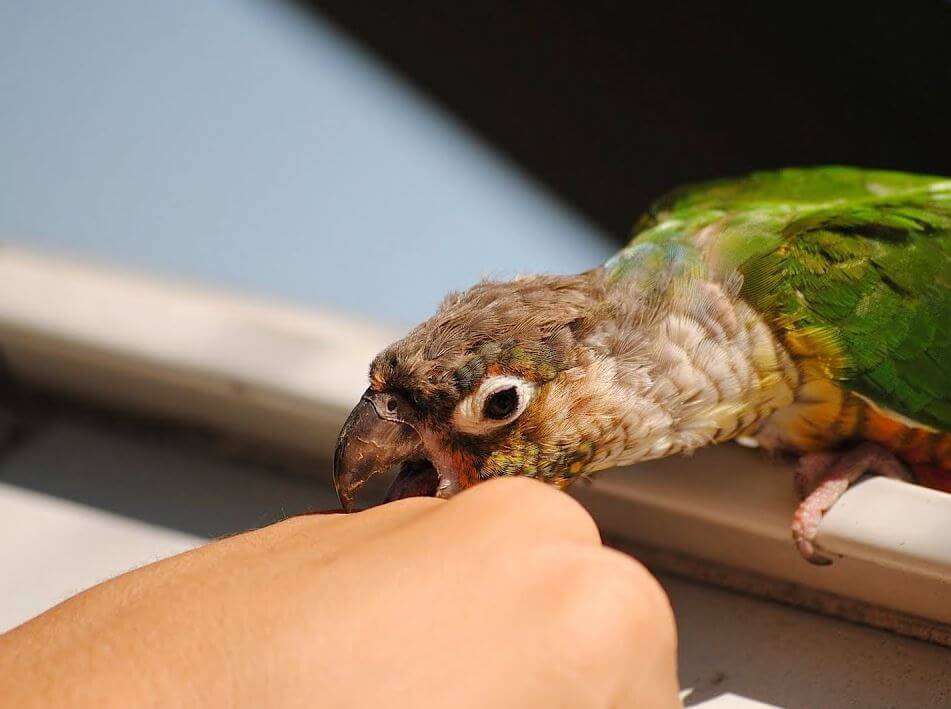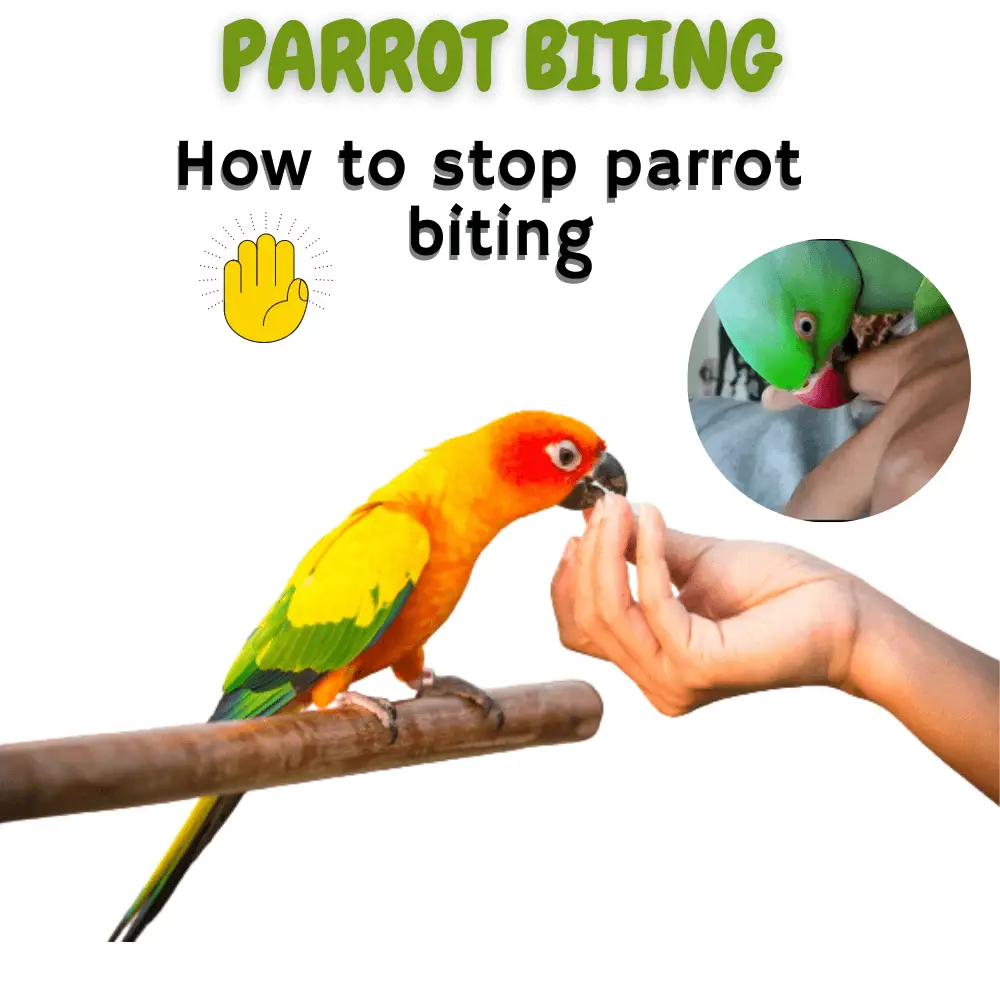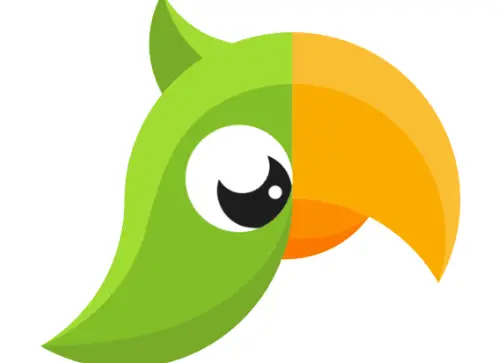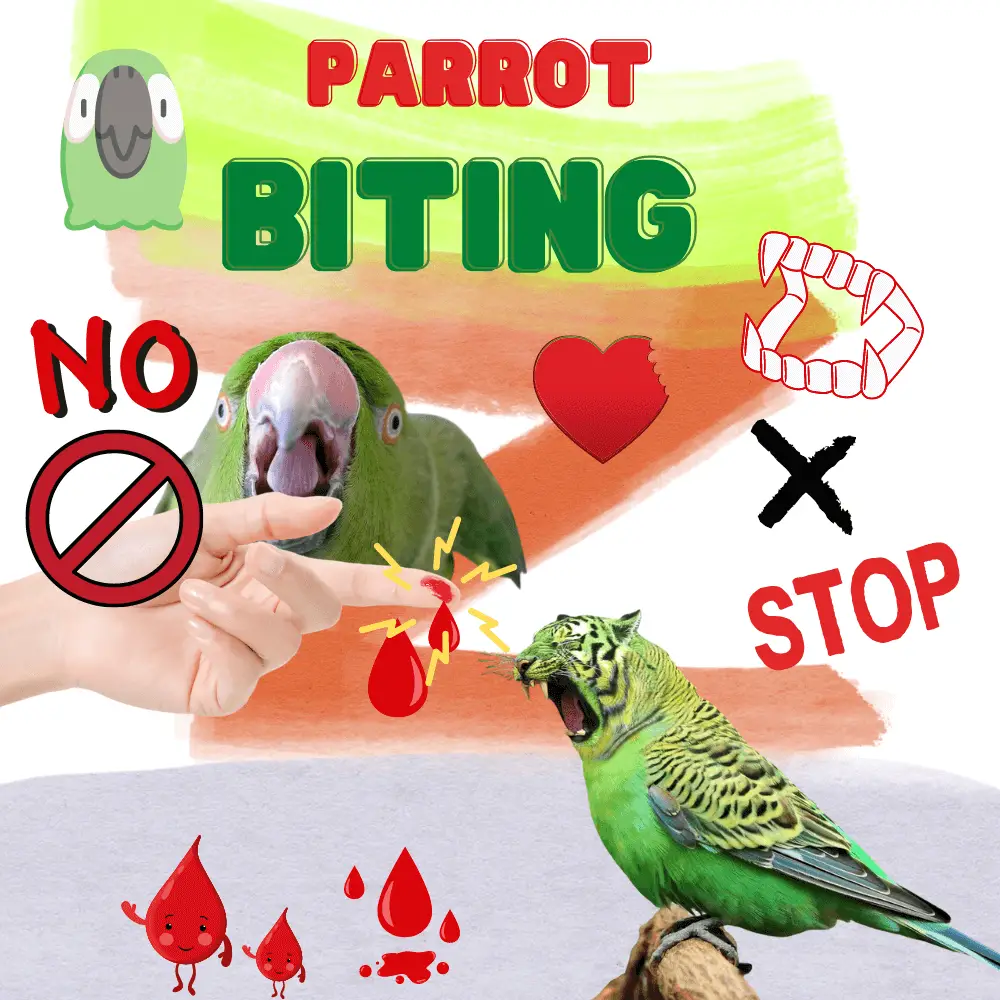Parrot biting: Birds can bite and sometimes the injury can be quite serious. However, a well-socialized bird will never bite for no reason; if it does, it is because it feels threatened, disturbed, or to get your attention (a bad habit).
Conure biting
Young conures tend to nibble to taste and test the resistance of objects. Your skin will not be spared, I warn you. But this is corrected by making your bird understand that your skin is not to bite.
This step is strictly obligatory in my eyes, it is at this age that the young bird must understand that biting hard is not a game and that he must not reproduce it.
My young pyrrhuras understood this well and therefore I let my children interact with them in all confidence:
A self-respecting breeder will give you a tame bird with a minimum of education, including “no bite” and “recall”.
If you are raising your own chicks here is a simple exercise to avoid this behavior:

How to stop parrot biting
To do this, you have to say a firm “No” to your bird and ignore it completely (neither look nor talk). Above all, do not react to the pain… It is not easy to do but it is an important step to take at the beginning.
Return to it or let it come back to you. Repeat the action until the bird stops biting. This is how he will understand that he will not have your attention by biting you.
You can also hold its beak between your index finger and thumb (gently) saying “No” if your bird is docile and not afraid of hands.
Not to be done in the case of a fearful, aggressive, or stressed bird …
- Apply positive reinforcement. This consists of rewarding the bird following a positive action on its part, in our case “ not biting”. Praise your bird and give it its favorite treat.
- Avoid locking him in his cage to punish him. His cage must be a pleasant place for him.
According to my friend ” Thierry ” passionate and confirmed breeder:
The punishment does not exist in the mind of the bird… and above all, it does not work. The only thing a bird takes away from punishment is that its bad behavior attracts the attention of its favorite human. It is therefore the expected reverse effect.
If the bird pinches and you put it on the ground, it has managed to get attention and will start over to get that result or another…
The rule is to ignore the bad actions and behaviors and reward with exaggeration (treatment or praise), good at the risk of appearing ridiculous.
The male or female pyrrhura, have periods in adolescence (to test you) but also when sexual maturity points its nose …
These periods require more attention at a time when the bird is less pleasant and when we would rather live away from it.
This is precisely the mistake not to make because by having more attention (and especially the good reflexes), these bad behaviors will disappear, making us a bird well in its feathers and psychologically balanced.
I have several testimonials from people who have pyrrhura molinae eam from my home, who were willing to listen to my advice, and who have great birds.
This is also true for other so-called “difficult” species such as ululating or celestial …
Stop Parrot Biting
Parrot bite wound
Adult, or second-hand parakeets and parrots, who have developed this bad behavior to communicate and/or get your attention, may also learn not to bite.
how to stop parrot from biting

- Take the time to get to know him. Give her time to get to know you so that you can build a trusting relationship between the two of you.
- Learn to interpret his body language by identifying signs of fear he might be expressing. All this will allow you to avoid the bite. Among these signs before the attack, there is dilation of the pupils, eye which fixes the hand, and ruffling of the plumage. ..
- Not reacting to a bite, not screaming, not looking at him, not showing fear, and not making sudden gestures. Push it (without violence of course) then ignore it. If you do the reverse, it will amuse him and reinforce this “biting” behavior.
Easily said than done !
I agree and know something about it . M ais so he will understand that biting is not an action to get your attention, or to repel you.
- Do not come into conflict with your bird so as not to transform this behavior into aggression.
- Apply positive reinforcement: Teach your bird to associate a good deed (positive behavior) with a reward. Do not hesitate to congratulate him and flatter him.
Avoid letting your parrot access your shoulder or head. At least until you have developed a relationship of absolute trust with him. Not because a parrot perched on the shoulder will be more dominant (this is a myth), but simply for the sake of safety.
Indeed, when your parrot is on your shoulder or your head, you cannot see its body language and therefore will not be able to react to it effectively.
If something suddenly frightens or angers him, you may end up with a bite to your face. Take my word for it, an earlobe, a lip, or a pierced nose, it happens very quickly and not only to others.

